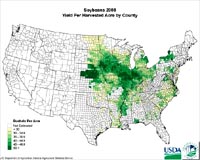 |
Columbia MO (SPX) May 29, 2009 A plant's immune system protects the plant from harmful pathogens. If the system overreacts to pathogens, it can stunt plant growth and reduce seed production. Now, University of Missouri researchers have identified important suppressors that negatively regulate the responses of the immune system in the plant species Arabidopsis thaliana. Understanding the immune system of plants would allow breeders to create better yielding crop plants. "The immune system provides plants with strong protection from pathogens," said Walter Gassmann, associate professor of plant sciences in the MU Christopher S. Bond Life Sciences Center and the College of Agriculture, Food and Natural Resources. "However, this response has the potential to be highly deleterious to the plant and needs to be tightly controlled. Certain suppressors protect the plant from responding to harmless stimuli and from overreacting to pathogens. If there is a mutation in these suppressors, the immune system can actually do more damage than good." One way that plants fight pathogens is through effector-triggered immunity (ETI), which relies on the detection of pathogen effector proteins (proteins that are deployed by pathogens to interfere with the plant immune system). After the detection of a pathogen, specific proteins in the plant, known as resistance proteins, elicit an effective defense response. The plants' resistance proteins are regulated by suppressors to achieve minimal side effects to the plant while providing optimal responses to pathogens. However, when the ETI is overly activated, it can cause stunted growth and poor seed production. In the study, MU researchers examined plants with genetic mutations that resulted in heightened plant immunity. By examining this mutation, researchers were able to identify specific genetic components that may negatively regulate the immune system and thus contribute to an appropriate immune response. "The general control of effector-triggered signaling is poorly understood," Gassmann said. "Better insight into the immune system response will allow us to develop plants with more durable safeguards against pathogens." Gassmann's research has been published recently in The Plant Journal and Plant Signaling and Behavior. The papers were co-authored by former post-doctoral researcher Soon Il Kwon, current graduate student Sang Hee Kim, current post-doctoral researcher Saikat Bhattacharjee, and former visiting scientist Jae-Jong Noh. Share This Article With Planet Earth
Related Links University of Missouri Farming Today - Suppliers and Technology
 Satellite Measurements Help Reveal Ozone Damage To Important Crops
Satellite Measurements Help Reveal Ozone Damage To Important CropsGreenbelt MD (SPX) May 29, 2009 The U.S. soybean crop is suffering nearly $2 billion in damage a year due to rising surface ozone concentrations harming plants and reducing the crop's yield potential, a NASA-led study has concluded. The study, presented at the American Geophysical Union Joint Assembly meeting, May 24 in Toronto, is based on five years of soybean yields, surface ozone, and satellite measurements of tropos ... read more |
|
| The content herein, unless otherwise known to be public domain, are Copyright 1995-2009 - SpaceDaily. AFP and UPI Wire Stories are copyright Agence France-Presse and United Press International. ESA Portal Reports are copyright European Space Agency. All NASA sourced material is public domain. Additional copyrights may apply in whole or part to other bona fide parties. Advertising does not imply endorsement,agreement or approval of any opinions, statements or information provided by SpaceDaily on any Web page published or hosted by SpaceDaily. Privacy Statement |